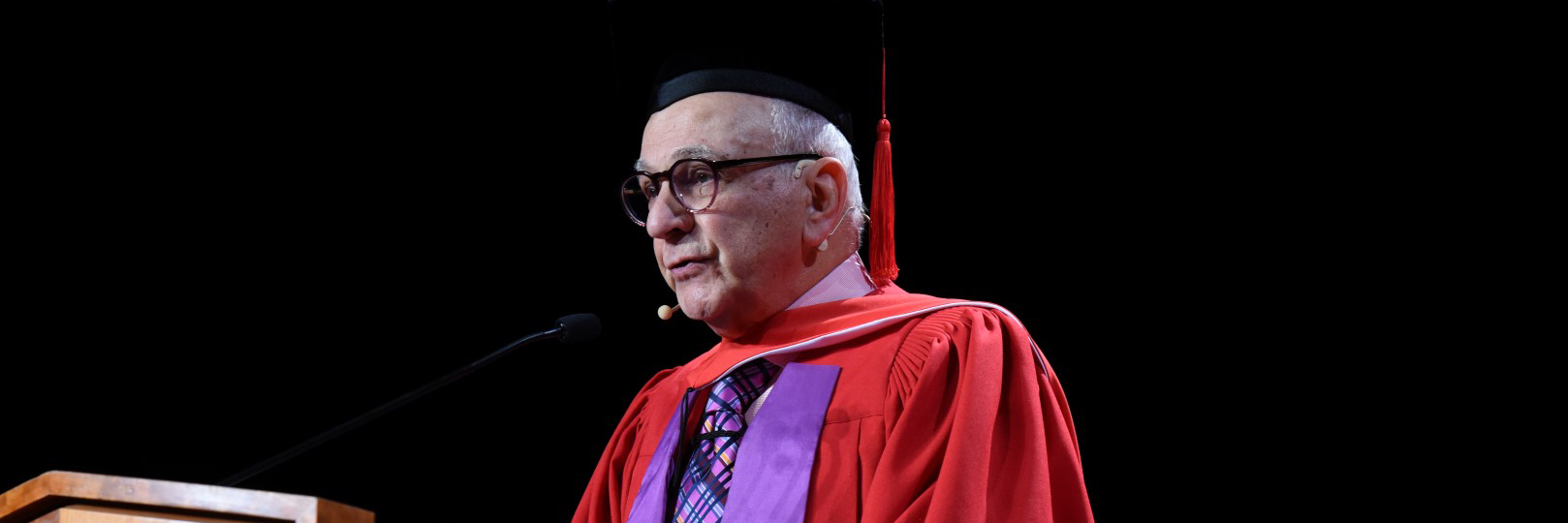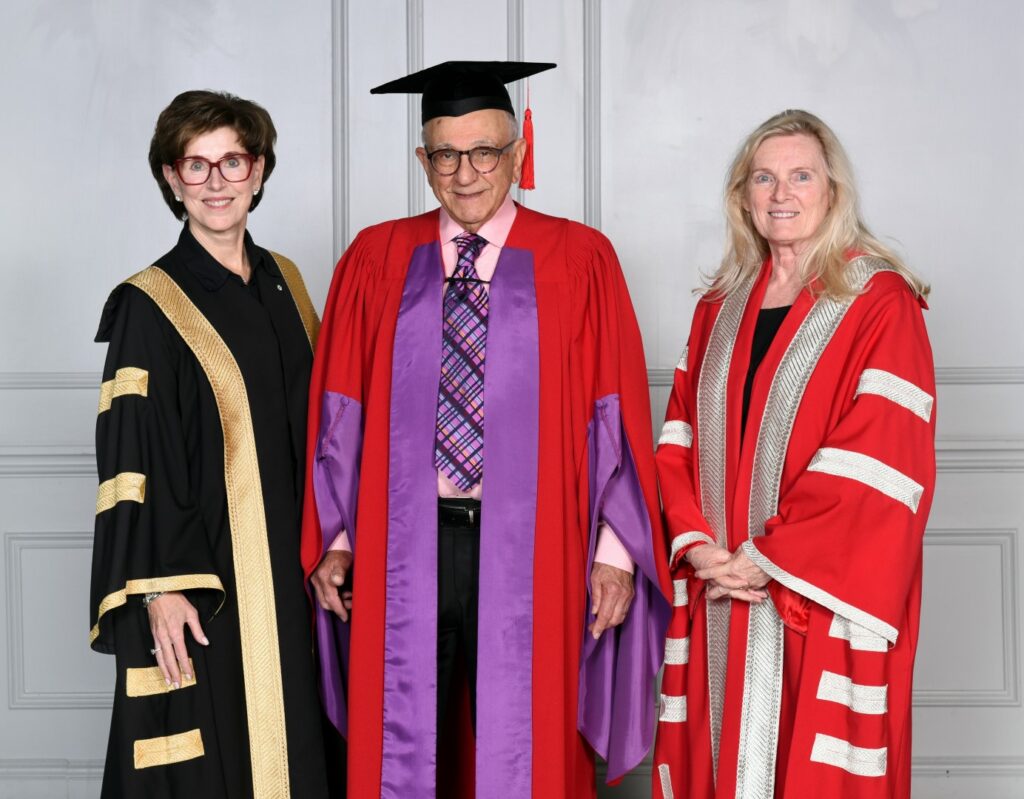
Edward Sorbara – an accomplished businessman in real estate planning, development, construction, investment and property management – shared stories from his life with graduands at an Oct. 17 convocation ceremony and encouraged them to create the future.
Graduating students stand on the precipice of several divergent paths before them, unsure which ones will lead to fortuitous outcomes, missed opportunities or simple “What if?” twists of fate.
That feeling is something Sorbara understands and spoke to as he shared some of the “What if?” moments from his, and his family’s, experiences.
First, Sorbara recounted how, in the 1950s, his father – a well-known Canadian businessman and founder of the Sorbara Group of Companies – and associates controlled the property on which York University now stands. At the time, Sorbara’s father considered creating residential developments on the land. Instead, they sold it. That decision, noted Sorbara, allowed “York University to flourish into the renowned institution it is today” and created the compounding ripples that led to it becoming the place where he was not only addressing graduands but receiving an honorary degree.
Sorbara then recalled another life moment, after finishing his undergraduate degree, when he passed a property his father’s company owned on Yonge Street. Thinking about his father's love of doughnuts, he suggested putting a doughnut store in it. “Almost immediately, I dismissed the idea," he said, "thinking I hadn't spent years in school to sell doughnuts.” Now, he wonders if that moment had been a missed opportunity, a chance to build a Tim Hortons-style empire before Ron Joyce did himself in the 1960s. Sorbara asked himself whimsically, “Could I have been Mr. Tim Horton?”

Another “What if?” in Sorbara’s life occurred 25 years ago, when he was having lunch with an associate at a pension fund at the top of the CN Tower. Sorbara recalled going up to the window, looking out and having a spark of inspiration: he suggested his associate’s fund should give the Sorbara Group the money to buy all the parking lots they could see in the immediate vicinity and use it for residential development. “It took him about five seconds to say no. The fund would never do that, because there were no specific, secure, predictable sources of rental income,” Sorbara recalled. “I could not argue with that, because he was right. But I wasn't looking at parking lots. I was looking at development land. Every one of those lots today is either an office building or a condo building. I was trying to be a visionary, and he was myopic.”
Sorbara explained that these stories were meant to be reflective, in part, of how in life and careers sometimes “you can’t see the forest for the trees.” But he encouraged graduands not to worry too much about the near misses.
After all, despite some missed opportunities, he noted how he and the Sorbara Group haven’t lacked accomplishments to be proud of. “We certainly had our successes in exploring different forests,” as he put it. “We've built hundreds of buildings, hundreds of apartments, millions of square feet of industrial space and lots of commercial space. We built the first Home Depot in Toronto. We built the first Costco.”
He went on to urge graduands into their future with some key bits of advice. “Find something that you excel at and are passionate about. You will build your own network, seek partners who share your enthusiasm and your work ethic, and you will commit to mastering your own career path,” he said.
As for the road ahead, he evoked a quote from Peter Drucker, a famed management consultant credited with revolutionizing the way corporations manage their businesses: “The best way to predict the future is to create it.”
Sorbara told graduands to do just that in the face of whatever challenges and opportunities they might encounter in these turbulent times. “We are in your hands now and we are counting on you,” he said.
